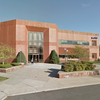Housing Market Woes Hit Worcester County Hard
The Central Massachusetts housing market is like a neighborhood where one Colonial has just been sided and had new windows put in, while the Cape next door just had its chimney fall over and the grass needs cutting.
Home stats in Worcester County are looking more troubled than in many parts of the state. According to the Warren Group's August real estate roundup, the number of Massachusetts single-family home sales was down just 1.5 percent since the same month last year, and condo sales had fallen only 2.2 percent. But in Worcester County, the single-family sales dropped 7 percent during that period, and condo sales plummeted 13.5 percent.
Hard Times In The City
Those numbers are even more striking placed next to those for neighboring Middlesex County where sales actually rose 2.4 percent and 4.4 percent respectively in the two categories.
Some area real estate experts have theories on what lies behind those numbers, but all say it's nearly impossible to draw clear lines of cause and effect when it comes to judging how people make complex decisions about whether to buy a home and where to buy it.
"Overall, I think a significant impact on the Worcester market is our high rate of foreclosures," said Jeff Hall, a RE/MAX real estate agent and vice president of the Worcester Regional Association of Realtors.
Hall said relatively low-income areas like the city of Worcester and some surrounding towns are particularly vulnerable in the current slump since more homeowners may have adjustable-rate mortgages. Meanwhile, as credit markets tighten, renters with limited funds who want to buy houses may have a harder time qualifying.
All that may apply to the city of Worcester, where foreclosure rates are much higher than in the state as a whole and household incomes are much lower, but it does not explain much about the county, which is only a little poorer than the state as a whole and has seen foreclosures rise on pace with the state (both up 66.5 percent in the first half of the year, compared with the same period in 2006 according to the Warren Group).
Area developer Roger Kane said the slump in Worcester County and boost in Middlesex County may reflect buyers taking advantage of falling prices to move east, toward the employment centers inside the Interstate 495 belt.
"A couple years ago, a buyer couldn't afford to buy a home, say, in Sudbury," he said. "This year they might be able to."
"There's always been a shortage of that first-time homebuyer home," he said. "Now it seems like some of those homes are sitting."
Hall said a similar drop in low-end sales may apply to the market for condos. Despite a 23 percent drop in Worcester County condo sales from July 2006 to July 2007, the median price for the units was up 5.5 percent according to the Warren Group numbers. (Those numbers didn't hold up in August, when sales and prices both dropped about 14 percent, but the year-to-date numbers still show prices falling far slower than sales.) Hall said there may be less interest in low-priced condos while the more expensive ones are attracting people who might have bought single-family homes in a better economic climate.
"I think it's the affordability idea that might be coming into play," he said.
Looking To The Future
Eric Berman, communications director for the Massachusetts Association of Realtors, said the question of how real estate markets are doing is really too complicated to break down by county.
"They say all real estate's local, like politics, and it's interesting that it really can go down to that street level," he said.
But Berman said that, in broad strokes, the northeast was the first region to hit a housing slump about two years ago and it may be the first to recover.
Karen LaChance, a Framingham-based real estate agent with ERA Key Realty Services, said that, despite the discouraging national headlines, she has already seen signs of an upward trend in Middlesex County, which could account for the improving sales numbers there. She said 2005 was one of her worst years, but things are looking much better now.
"We're not back anywhere near where we had been," she said, "But I think the old days are definitely behind us."
LaChance said job growth in hi-tech companies like Genzyme Corp. should boost the housing market, not just along the Interstate 495 corridor but well into Worcester County as well.
"Hopefully we'll see the wave move toward the west," she said.
Several other real estate agents also said they are optimistic that the Worcester County housing market will turn around before long. Hall said he hopes government action, like raising the limit on Federal Housing Administration loans, will encourage buyers. And Patricia Murray, the 2008 WRAR president elect and a Coldwell Banker Residential Brokerage Realtor, said Worcester County is poised to offer good prices and easy access to job centers.
"We see a lot of buyers coming from MetroWest for affordability," she said, adding that improvements in the Worcester area may draw new residents. "Look at what Worcester's doing with [Route] 146, what that will do for Worcester."









0 Comments